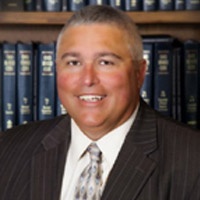Leesville Misdemeanor Lawyer, Ohio
Not enough matches for Leesville Misdemeanor lawyer.
Below are all Leesville Criminal lawyers.
Michael Boske
✓ VERIFIEDCriminal
Having tried hundreds of cases, Michael Boske is one of Canton's most experienced trial lawyers, with extensive knowledge of the local courts, judges,... (more)
Louis John Gigliotti
✓ VERIFIEDCar Accident, Personal Injury, Criminal, Estate
Louis J. Gigliotti Jr. believes in fighting vigorously for his clients
Mark Franklin Graziani
✓ VERIFIEDBankruptcy & Debt, Estate, Lawsuit & Dispute, Criminal, Divorce & Family Law
Mark Graziani is a practicing lawyer in the state of Ohio. He received his J.D. from University of Akron School of Law in 2014 and is licensed in Ohio... (more)
FREE CONSULTATION
CONTACTFREE CONSULTATION
CONTACTDavid John Betras
Criminal, Contract, Business Organization, Personal Injury
Status: In Good Standing
FREE CONSULTATION
CONTACTJohn Charles Childers
Real Estate, Federal Appellate Practice, Estate, Criminal
Status: In Good Standing Licensed: 47 Years
Robert Charles Urban
Social Security, Family Law, Criminal, Personal Injury
Status: In Good Standing Licensed: 40 Years
Steven Anthony Anderson
Real Estate, Traffic, Lawsuit & Dispute, Criminal, Accident & Injury
Status: In Good Standing
John Scott Campbell
Estate Planning, Family Law, Criminal
Status: In Good Standing Licensed: 48 Years




